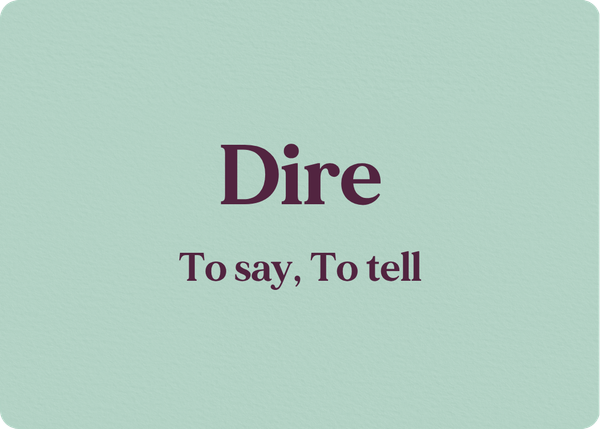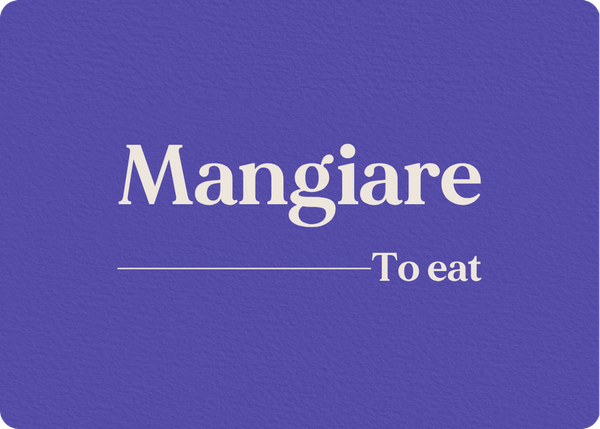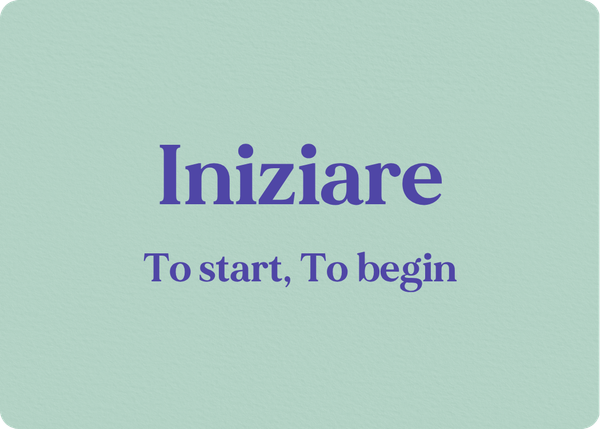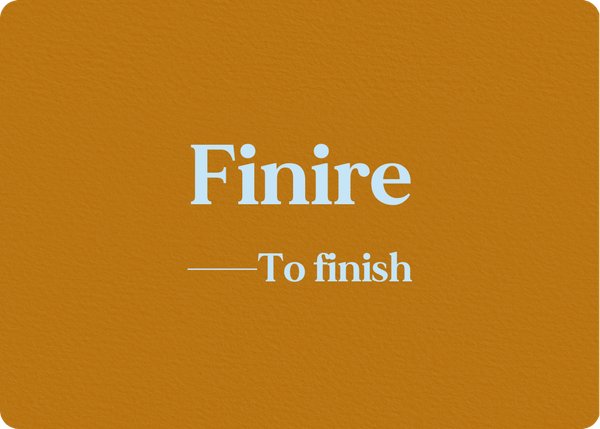What is Dire?
Dire is one of the most essential Italian verbs meaning "to say" or "to tell". It belongs to the third conjugation (-IRE verbs) but is highly irregular in many tenses. This verb is useful for expressing communication, reporting speech, and is one of the most frequently used verbs in Italian conversation and writing.
Key Features of Dire:
- Type: Irregular third conjugation verb (-IRE)
- Meaning: To say, to tell, to speak, to express
- Irregularities: Present tense (dico), imperfect (dicevo), simple past (dissi, etc.), future (dirò), present subjunctive (dica), imperfect subjunctive (dicessi), conditional (direi), imperative (di'), past participle (detto), gerund (dicendo)
- Auxiliary verb: Uses "avere" (to have) for conjugation in compound tenses
- Past participle: Detto
Indicativo – Indicative Mood
Presente (Present Tense)
| Person | Conjugation |
|---|---|
| io | dico |
| tu | dici |
| lui/lei | dice |
| noi | diciamo |
| voi | dite |
| loro | dicono |
Example:
Dico sempre la verità.
I always tell the truth.
Passato Prossimo (Present Perfect)
| Person | Conjugation |
|---|---|
| io | ho detto |
| tu | hai detto |
| lui/lei | ha detto |
| noi | abbiamo detto |
| voi | avete detto |
| loro | hanno detto |
Example:
Abbiamo detto di sì senza esitazione.
We said yes without hesitation.
Imperfetto (Imperfect)
| Person | Conjugation |
|---|---|
| io | dicevo |
| tu | dicevi |
| lui/lei | diceva |
| noi | dicevamo |
| voi | dicevate |
| loro | dicevano |
Example:
Da piccolo, Stefano diceva qualche bugia.
As a child, Stefano used to tell some lies.
Trapassato Prossimo (Past Perfect)
| Person | Conjugation |
|---|---|
| io | avevo detto |
| tu | avevi detto |
| lui/lei | aveva detto |
| noi | avevamo detto |
| voi | avevate detto |
| loro | avevano detto |
Example:
Mirta e Stefania ci avevano detto di voler partecipare al laboratorio di fotografia, ma poi hanno cambiato idea.
Mirta and Stefania had told us they wanted to take part in the photography workshop, but then they changed their minds.
Passato Remoto (Simple Past)
| Person | Conjugation |
|---|---|
| io | dissi |
| tu | dicesti |
| lui/lei | disse |
| noi | dicemmo |
| voi | diceste |
| loro | dissero |
Example:
Gli dissi tutto quello che sapevo.
I told him everything I knew.
Trapassato Remoto (Past Anterior)
| Person | Conjugation |
|---|---|
| io | ebbi detto |
| tu | avesti detto |
| lui/lei | ebbe detto |
| noi | avemmo detto |
| voi | aveste detto |
| loro | ebbero detto |
Example:
Dopo che ebbe detto quelle parole, se ne andò.
After he had said those words, he left.
Futuro Semplice (Simple Future)
| Person | Conjugation |
|---|---|
| io | dirò |
| tu | dirai |
| lui/lei | dirà |
| noi | diremo |
| voi | direte |
| loro | diranno |
Example:
Domani ti diremo la nostra decisione.
Tomorrow we will tell you our decision.
Futuro Anteriore (Future Perfect)
| Person | Conjugation |
|---|---|
| io | avrò detto |
| tu | avrai detto |
| lui/lei | avrà detto |
| noi | avremo detto |
| voi | avrete detto |
| loro | avranno detto |
Example:
Quando arriverai, le avrò già detto tutto.
When you arrive, I will have already told her everything.
Congiuntivo – Subjunctive Mood
Presente (Present Subjunctive)
| Person | Conjugation |
|---|---|
| che io | dica |
| che tu | dica |
| che lui/lei | dica |
| che noi | diciamo |
| che voi | diciate |
| che loro | dicano |
Example:
È importante che lui dica ciò che pensa.
It's important that he says what he thinks.
Passato (Past Subjunctive)
| Person | Conjugation |
|---|---|
| che io | abbia detto |
| che tu | abbia detto |
| che lui/lei | abbia detto |
| che noi | abbiamo detto |
| che voi | abbiate detto |
| che loro | abbiano detto |
Example:
Penso che abbiano detto la cosa giusta.
I think they said the right thing.
Imperfetto (Imperfect Subjunctive)
| Person | Conjugation |
|---|---|
| che io | dicessi |
| che tu | dicessi |
| che lui/lei | dicesse |
| che noi | dicessimo |
| che voi | diceste |
| che loro | dicessero |
Example:
Credevo che tu dicessi sul serio.
I thought you were speaking seriously.
Trapassato (Past Perfect Subjunctive)
| Person | Conjugation |
|---|---|
| che io | avessi detto |
| che tu | avessi detto |
| che lui/lei | avesse detto |
| che noi | avessimo detto |
| che voi | aveste detto |
| che loro | avessero detto |
Example:
Se loro avessero detto di no, avremmo cambiato piano.
If they had said no, we would have changed plans.
Condizionale – Conditional Mood
Presente (Present Conditional)
| Person | Conjugation |
|---|---|
| io | direi |
| tu | diresti |
| lui/lei | direbbe |
| noi | diremmo |
| voi | direste |
| loro | direbbero |
Example:
Ti direbbe tutto se si fidasse di te.
He’d tell you everything if he trusted you.
Passato (Past Conditional)
| Person | Conjugation |
|---|---|
| io | avrei detto |
| tu | avresti detto |
| lui/lei | avrebbe detto |
| noi | avremmo detto |
| voi | avreste detto |
| loro | avrebbero detto |
Example:
Al posto tuo avrei detto la stessa cosa.
In your place, I would have said the same thing.
Imperativo (Imperative)
| Person | Conjugation |
|---|---|
| (tu) | di' |
| (lui/lei) | dica |
| (noi) | diciamo |
| (voi) | dite |
| (loro) | dicano |
Example:
Dica pure cosa pensa, Signor Ciani.
Please go ahead and tell us what you think, Mr. Ciani.
Indefinite Moods
Infinito (Infinitive)
- Presente (Present): dire (to say/tell)
- Passato (Past): avere detto (to have said/told)
Examples:
È importante dire grazie.
It's important to say thank you.
Aver(e) detto quelle parole mi ha fatto sentire meglio.
Having said those words made me feel better.
Participio (Participle)
- Passato (Past): detto (said/told) - also used as adjective and noun (saying, proverb, maxim)
Example:
Quello che hai detto mi ha fatto riflettere.
What you said made me think.
Venezia è detta "La Serenissima".
Venice is known as ‘La Serenissima.
È un vecchio detto della nonna.
It’s an old saying of my grandmother.
Gerundio (Gerund)
- Presente (Present): dicendo (saying/telling)
- Passato (Past): avendo detto (having said/told)
Examples:
Dicendo la verità, risolverai tutti i problemi.
Telling the truth will solve all your problems.
Avendo detto tutto, possiamo chiudere la riunione.
Having said everything, we can close the meeting.
The verb Dire at a glance: Key tenses you need
| Present | Present Perfect | Imperfect | Present Subjunctive | Imperfect Subjunctive | Present Conditional |
|---|---|---|---|---|---|
| io dico | io ho detto | io dicevo | che io dica | che io dicessi | io direi |
| tu dici | tu hai detto | tu dicevi | che tu dica | che tu dicessi | tu diresti |
| lui/lei dice | lui/lei ha detto | lui/lei diceva | che lui/lei dica | che lui/lei dicesse | lui/lei direbbe |
| noi diciamo | noi abbiamo detto | noi dicevamo | che noi diciamo | che noi dicessimo | noi diremmo |
| voi dite | voi avete detto | voi dicevate | che voi diciate | che voi diceste | voi direste |
| loro dicono | loro hanno detto | loro dicevano | che loro dicano | che loro dicessero | loro direbbero |
Conclusion
Mastering the conjugation of "dire" is essential for expressing communication, thoughts, and speech in Italian. This highly irregular third conjugation verb requires careful attention to its unique forms in multiple tenses.
Remember the key points:
- Uses "avere" for conjugation in compound tenses
- Irregular in several important tenses with unique forms
- Past participle is "detto"
- Special imperative form "di' (tu)
- Essential for expressing speech, communication, opinions, reporting, and verbal interactions
Keep practicing with real sentences and contextual examples to master this fundamental Italian verb!





